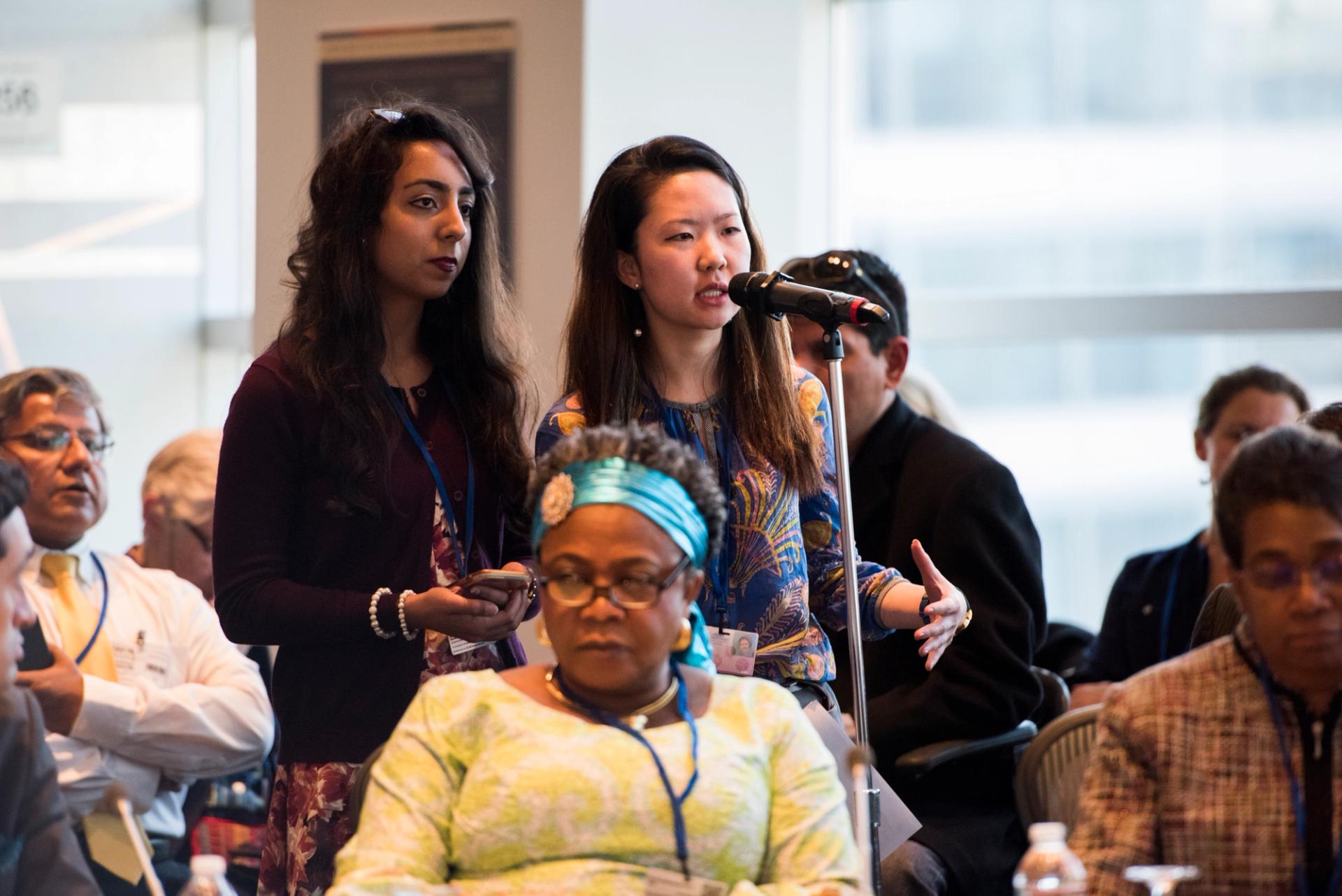Blog
5 ways to improve CSO engagement in UNCAC – and to help anti-corruption catch up with human rights

For almost two decades, the United Nations Convention Against Corruption (UNCAC) has been the cornerstone of anti-corruption legislation around the globe. Signed and ratified now by 189 countries worldwide, it is the only legally binding global anti-corruption treaty. Its scope is extensive, recognising both preventive and punitive measures, and acknowledging the importance of civil society organisations (CSOs) in the fight against corruption.
The UNCAC review process – the Implementation Review Mechanism (IRM) – is a key aspect of the Convention, ensuring a periodic assessment of whether signatories are living up to their commitments. Using a peer review process, it helps identify any loopholes and gives recommendations to government signatories for improving implementation. The review mechanism has been in its second cycle since 2015, under the coordination of the United Nations Office on Drugs and Crime (UNODC) – the Convention’s custodian. This cycle will assess the implementation of the Convention chapters on ‘Preventive Measures’ and ‘Asset Recovery’. After numerous delays, it is now expected to be complete in June 2024.
Since early 2020, we (the authors) have been assessing global and regional projects which have sought to increase the involvement of CSOs in the UNCAC reviews at the national level and in international forums (see, for example, UNCAC Coalition reports from April 2020, April 2021, and December 2021). Civil society involvement helps ensure the reviews are comprehensive and accurate, and should improve transparency and accountability. However, we found many instances of the civil sphere coming under attack, CSOs facing barriers to their involvement in the review process, and elements of the review process which appear to be at odds with the principles of transparency, participation and accountability.
Based on our research, we make five key recommendations for the UNODC and Government Signatories to the Convention for how meaningful and consistent CSO involvement in UNCAC can be achieved so that the Convention better lives up to its core principles of participation and transparency. In many of these, UNCAC needs to catch up with the precedent set by the Human Rights Convention. We find a clear need for those States Parties to the Convention who believe in the positive role of civil society to take a much stronger stance in calling for meaningful and consistent CSO involvement in the review process.
1. Treat the Anti-Corruption Convention Review Process more like human rights
The IRM should guarantee CSOs the opportunity to provide their views. At the moment the UNCAC country reviews include a self-assessment checklist for each States Party (typically a country government) to complete. This results in an executive summary (all of which are published) and full report (which countries can decide whether or not to publish). While the UNODC encourages engagement with civil society for the country reviews, it is not required. This is despite the Convention itself stating (Article 13) that CSOs are important for fighting corruption.
This contrasts quite strongly with the review process for the Human Rights Convention: the Universal Periodic Review (UPR). The UPR also involves the production of a national report where CSOs can be consulted during its production, and which is then peer reviewed – just like UNCAC. But unlike the UNCAC review process, it also involves the compilation by OHCHR of information submitted by other stakeholders (including civil society actors, national human rights institutions, and regional organisations) into a summary report.
In this way, CSOs are not only given voice in the review process but are assured that the information they provide is presented in an independent way, because of the centralised role played by OHCHR. The UNCAC review process can adopt similar elements to make sure CSOs have real voice and agency in the process.
2. Improve access to basic information
For the UNCAC country reviews, an individual is selected for each country to be the national government ‘focal point’, responsible for the review. However, details on who the focal point is and when they are starting the review can be very hard to find out, meaning CSOs who want to participate in the process might miss out due to lack of information as they don’t even know who their counterpart is.
The UNODC has been trying to address some of these information gaps via the work of their civil society unit which supports networking between national government and CSOs, in an effort to bridge these information gaps. But much more should be done to make this information publicly available and easily accessible, in clear language on the UNODC website, so that CSOs and the public can find out who their government focal point is, how to contact them, and the timeline for the review.
Better access to information would support a more inclusive review process, so making this information more easily accessible should be a priority.
3. Catch up with transparency standards set by other anti-corruption Conventions
After the UNCAC reviews are completed, only the executive summaries of the country reports must be published. It is not mandatory to publish the full reports and the country checklist, despite these including a wealth of information on corruption weaknesses in the country – information that would be useful for CSOs and the media alike.
The lack of transparency around the full country reports means the UNCAC lags far behind processes used for other corruption Conventions, such as the Council of Europe’s Group of States against Corruption (GRECO) or the OECD Anti-Bribery Convention, which make full country reports publicly available. More transparency on the findings from the reviews is vital for quicker progress on the UNCAC and would enable CSOs to play a greater role in advocating for necessary reforms.
Indeed, there is also very little transparency in the UNCAC country review reports about which non-state actors were consulted by States Parties. Information on what types of non-state actors, how many, and which organisations were consulted should be made publicly available on the UNODC’s website. This would help to substantiate how ‘inclusive’ the consultation process was.
4. Protect the rights of CSOs to attend international forums
Currently it is far too easy for governments to prevent specific CSOs from attending international conferences related to the UNCAC, like the Conference of States Parties (CoSP). For example, at the 9th CoSP held in Sharm El-Sheikh, Egypt, in 2021, eight CSOs – including Access Info Europe and Transparency International Georgia – were prevented from attending due to objections from the Turkish Government. There are no clear, transparent guidelines for why they had been blocked, and the CSOs were not given the opportunity to respond. Nor are CSOs able to participate in the subsidiary working groups and expert groups at these events.
Attendance at these conferences is not only useful for promoting transparency of the proceedings themselves, but it gives CSOs the opportunity to meet and learn from each other about UNCAC progress. If the UNODC is serious about CSO engagement, it should actively promote CSO attendance.
Here again, UNCAC should learn from the process for the Human Rights Convention. Accredited CSOs can make statements during the regular sessions of the Human Rights Council when the outcomes of the State Reviews are considered, and they can observe the working group sessions on the review process. The UNCAC review should adopt similar processes to ensure CSOs have access, information and input.
5. Support CSO shadow reports
In the meantime, until the full reports are published and CSOs are guaranteed meaningful involvement in their production, greater financial and technical support should be given to CSOs to produce their own ‘shadow’ reports. The UNCAC Coalition (a global, donor-funded, membership anti-corruption NGO) currently does exactly this: CSO-produced parallel reports for UNCAC’s second review cycle are available on their website. But more funding is needed to ensure reports are produced for all countries where there are questions about the completeness of official reports, or for countries where there will not be public access to the full report.
A critical moment for UNCAC and civil society
As UNCAC’s second review process is moving into the final stage, the time is ripe for the anti-corruption community to take a hard look at the UNCAC process. We can learn from best-practice approaches used by other Conventions, to ensure the UNCAC is fit for purpose and supports effective engagement of civil society.
Disclaimer
All views in this text are the author(s)’, and may differ from the U4 partner agencies’ policies.
This work is licenced under a Creative Commons Attribution-NonCommercial-NoDerivatives 4.0 International licence (CC BY-NC-ND 4.0)


